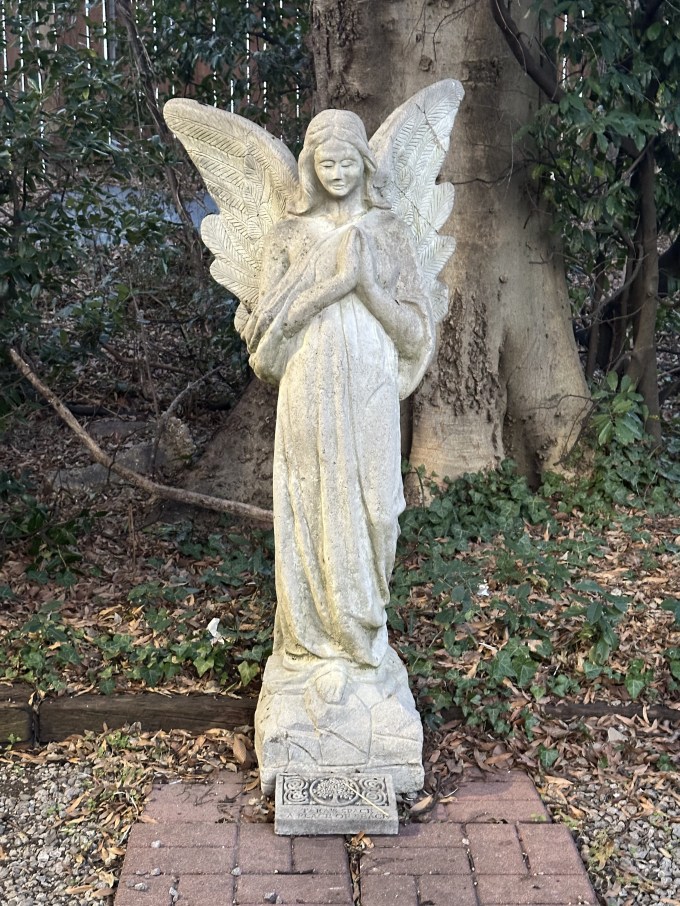As I arrived at Manna House a guest said, “Could you get me some water? I’m really thirsty.” He along with a few others were waiting for me to open the gate to the front yard. They are the early arrivers, hoping to get on the shower list.
The heat and humidity have been unrelenting the past few weeks. Guests arrive exhausted, drenched in sweat, thirsty. The numbers of guests who come early is increasing.
Though it’s well over an hour before the morning hospitality will begin, I go into the house and get a pitcher of cold water and some cups. When I return to the porch everyone is delighted to get a drink. Several ask for and receive refills. It only takes a few minutes, but the relief on the faces of the guests is obvious. A drink of cold water will make their wait a bit more tolerable.
Once Manna House is open, we have a water cooler in the backyard. It empties quickly as thirsty guests drink cup after cup of water. We will refill this five-gallon cooler three or four times before the morning is over.
Water. The Bible is filled with references to water. For the biblical writers living in semi-arid lands, water is precious. Water for them, as for us, is life.
In Psalm 23, the Bible speaks of water as signifying God’s presence.
The Lord is my shepherd, I lack nothing.
He makes me lie down in green pastures,
he leads me beside quiet waters,
he refreshes my soul.
The Bible sees the provision of water as a provision made by God. When Hagar and Ishmael are near death in the desert, God provides water (Genesis 21:8-21). In the Exodus story as the people of Israel move through the desert, they thirst, and God provides water (Exodus 17). Isaiah the prophet often uses water to symbolize the care God has for God’s people, “For I will pour water on the thirsty land, and streams on the dry ground; I will pour out my Spirit on your offspring, and my blessing on your descendants” (Isaiah 44:3, see also 49:10, 58:11). In the prophet Amos, water symbolizes the full coming of God’s justice, “Instead, let justice flow like a stream, and righteousness like a river that never goes dry” (Amos 5:4).
When Jesus on the cross says, “I thirst,” the violence of his execution is intensified by his need for life giving water (John 19:28). Those who stood by and mocked him did not bring him water to drink. They give him vinegar. Earlier in his life Jesus taught, “Whatever you do unto the least of these you do unto me,” and he identified with those who need water, “I was thirsty, and you gave me something to drink” (Matthew 25:31-46).
Our guests thirst because water is hard to come by on the streets. Like Jesus’ executioners mocking him as he thirsts, businesses respond to those crucified on the streets by posting, “Restrooms for customers only.” Water in our society is a commodity reserved for those who can pay. As a city we have very few public water fountains, and they typically do not work. Memphis, like most major cities, is not hospitable to people on the streets.
In the Book of Revelation, a vision is shared in which water fulfills God’s healing of the whole creation. Water is redemptive.
Then the angel showed me the river of the water of life, bright as crystal, flowing from the throne of God and of the Lamb through the middle of the street of the city; also, on either side of the river, the tree of life with its twelve kinds of fruit, yielding its fruit each month. The leaves of the tree were for the healing of the nations (Revelation 22:1-2).
In contrast to this joyous vision of life-giving water, there is the angry and hateful rhetoric of today’s rulers who reject the joy of God’s reign. Their politics of scarcity and fear cannot imagine a world in which we share basic goods like water. Instead, for them everything has a price. The cash nexus determines all human relationships.
After I had served water to the guests on the front porch, I went back into the house to set up for the morning’s hospitality. I was thankful. The thirsty guests had invited me into the joy of God’s reign. As I shared cold water with them on a hot morning, I sensed the loving, liberating, and life-giving presence of God. God had brought me to the water.
